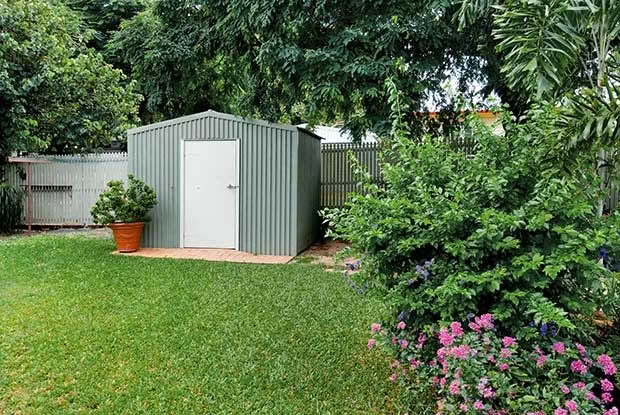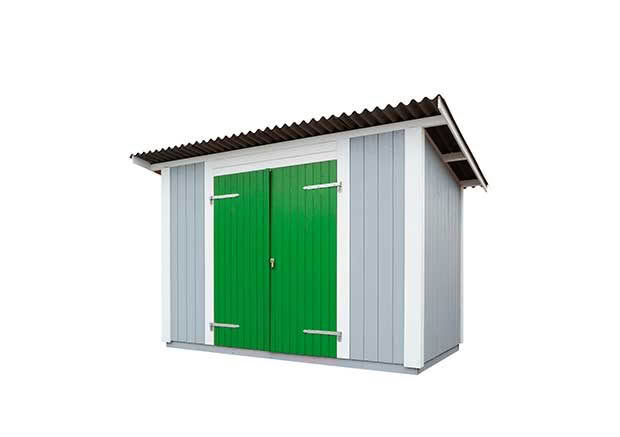5 tips for building a small shed

If you want to build a small shed, here’s what you need to consider.
Words: Nadene Hall
You can never have too many sheds. But if your budget doesn’t spring to something that requires a council permit, it is possible to build a garden shed under 10m² without one.*
To qualify as a ‘garden shed’, it must be one storey, contain no facilities (eg, a toilet, water supply) and must be at least its own height away from any boundary.
*check for the maximum size and other conditions that may be in place in your area as these can vary from council to council.
1. PACE IT OUT
A shed under 10m² can have any floor dimensions you like. For example, you may choose to have a wide shed that’s not very deep, or one that’s deep enough to allow you to store a ride-on mower. But whatever you want, it pays to grab a measuring tape and some pegs and work out what size works best for your needs. Make sure it’s also easy to access.
2. SITE
A flat site is going to need the least amount of preparation, but you also want a clay base (so you can lay a concrete base, or at the very least a gravel base) and you want to make sure there is adequate drainage.

3. CHOOSE A KITSET GARDEN SHED CAREFULLY
There is a wonderful range of small kitset garden sheds in stores these days, mostly designed for urban gardens and very sheltered sites. These don’t tend to require a permit (the retailer will tell you if it does) and come with everything you need.
Kitset sheds don’t tend to require permits, but may not be strong enough for an open site.
However, if you’re planning to have your shed sitting anywhere that’s not an enclosed, sheltered place, particularly if you get strong winds, check the specs: the frames and trusses are often thin steel that don’t have the rigidity or strength to stand up to wind gusts, and if you’re near the sea, they may not have the right specification cladding to withstand salt.
4. GOOD FASTENINGS ARE CRUCIAL
If you’re not experienced at building, you may think it’s a case of grabbing a hammer and nails, but tech screws and rivets are important fastenings, especially for cladding and roofing. Brackets to attach it to a floor or concrete foundation blocks also add strength, reinforcing the frame.
5. WATCH THE DOORS
There’s nothing more annoying than building your shed to fit your ride-on mower, then finding it won’t fit. Make sure you measure the width of your mower and allow extra room for hinges and the door’s frame.
Doors can be sliding doors (easier to install, but do require a wall to slide past) or hinged doors which can be closed and secured more easily. Always have doors on the longest side so you can easily access everything in your shed, whether it’s to the left or the right.
Love this story? Subscribe now!
 This article first appeared in NZ Lifestyle Block Magazine.
This article first appeared in NZ Lifestyle Block Magazine.
